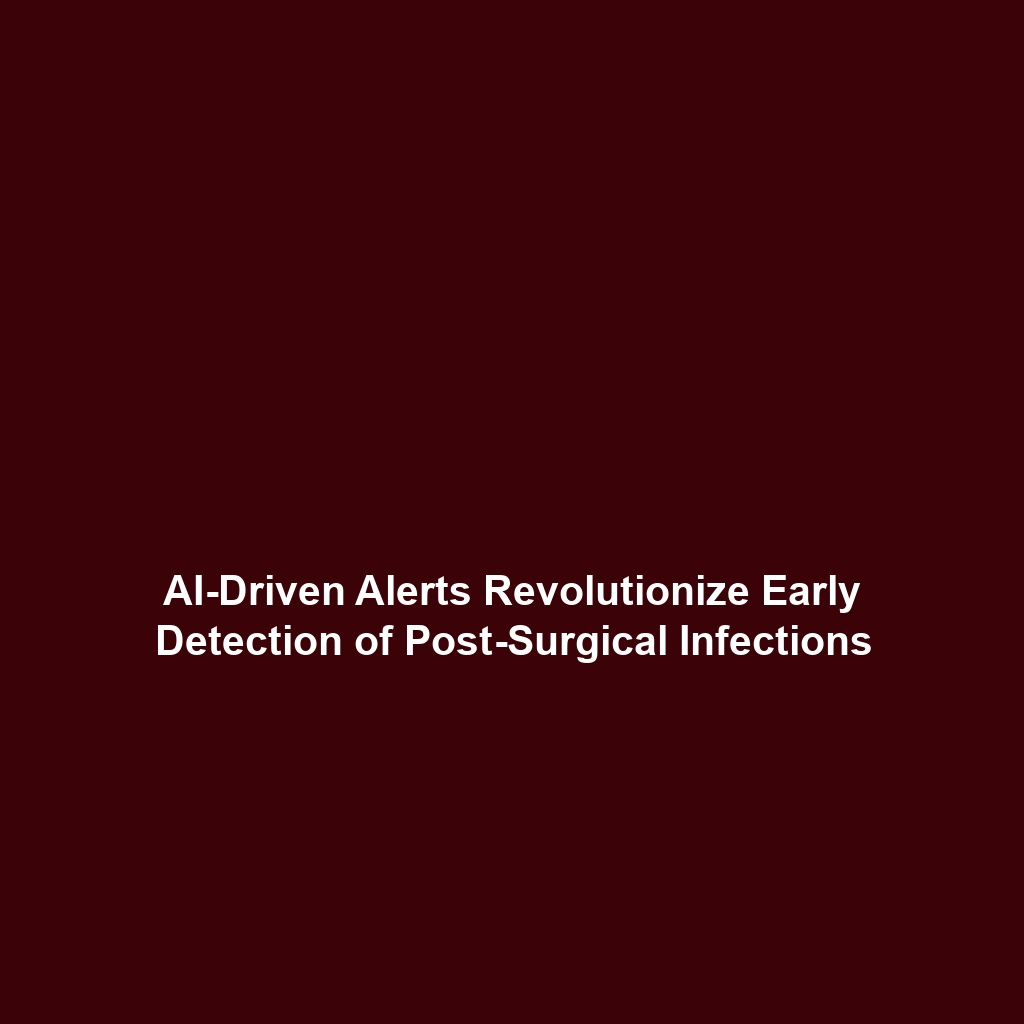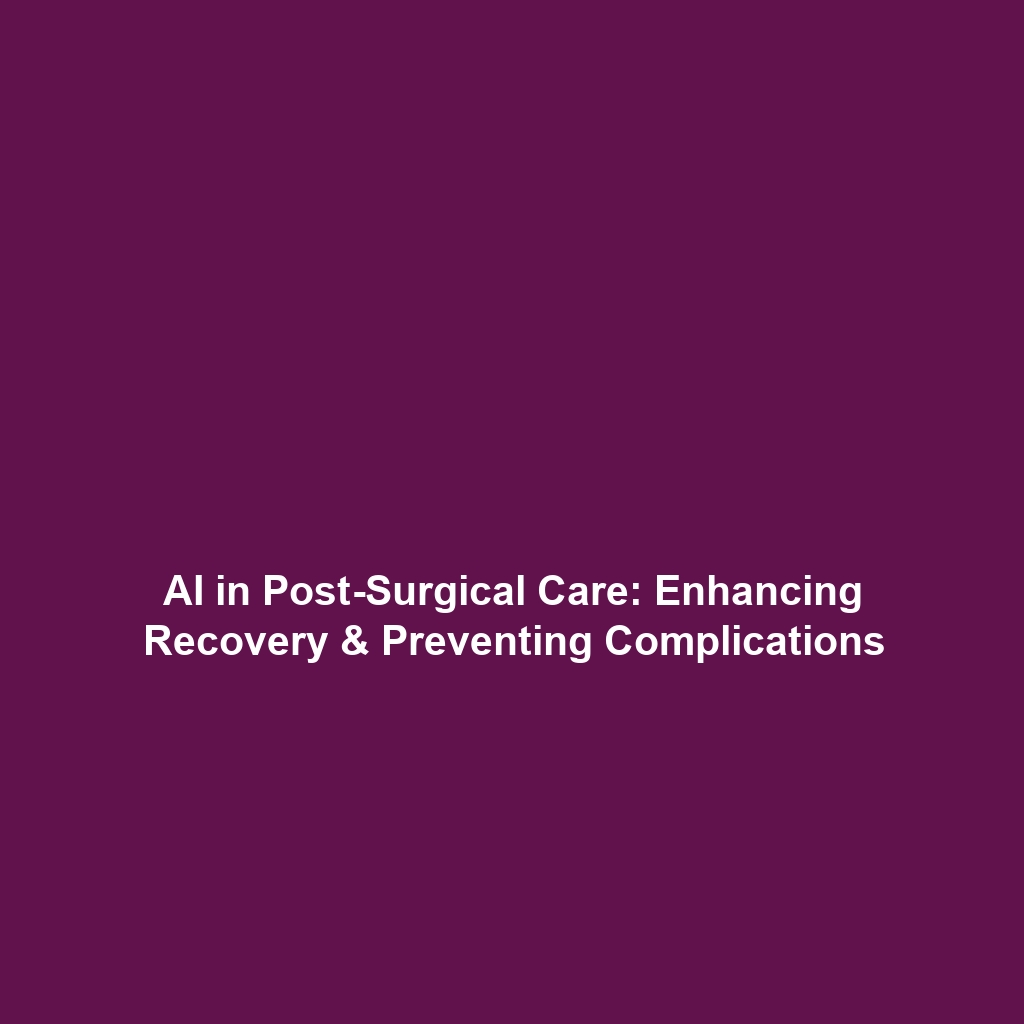AI-Driven Alerts for Early Detection of Post-Surgical Infections and Complications
Introduction
In the evolving field of AI in Healthcare, the implementation of AI-driven alerts for early detection of post-surgical infections or complications is a groundbreaking advancement. These systems utilize advanced algorithms and machine learning techniques to monitor patient data in real-time, providing healthcare professionals with alerts that may indicate emerging infections or other serious complications after surgery. Early detection through AI can significantly enhance patient outcomes, streamline clinical workflows, and reduce hospital readmission rates.
Key Concepts
Understanding AI-Driven Alerts
AI-driven alerts function by analyzing vast amounts of patient data, including vital signs, laboratory results, and clinical notes. By applying predictive analytics, these systems can identify anomalies that suggest a potential infection or complication. The key principles include:
- Data Integration: Integrating diverse data sources for comprehensive analysis.
- Machine Learning: Utilizing algorithms that learn from past data to improve accuracy.
- Real-Time Monitoring: Continuously analyzing patient data to provide timely alerts.
Applications and Real-World Uses
AI-driven alerts for early detection of post-surgical infections have found significant applications in various healthcare settings. Here are a few notable examples:
- Hospital Settings: Many hospitals have implemented machine learning systems that alarm healthcare providers when a patient’s vital signs deviate from established thresholds.
- Remote Patient Monitoring: AI can monitor patients post-discharge through wearable devices, alerting care teams of potential complications.
Understanding how AI-driven alerts are used in the healthcare category demonstrates their crucial role in optimizing patient safety and operational efficiency.
Current Challenges
Despite their promise, there are several challenges associated with AI-driven alerts for early detection of post-surgical infections:
- Data Privacy: Ensuring patient confidentiality while utilizing personal health data.
- Algorithm Bias: Addressing biases in training data that may affect alert accuracy.
- Integration Issues: Difficulties in implementing AI systems into existing healthcare workflows.
Future Research and Innovations
The future of AI-driven alerts is promising, with ongoing research aimed at enhancing their effectiveness. Innovations may include:
- Natural Language Processing: Improved algorithms that understand clinician notes better.
- Enhanced Predictive Models: Utilizing more comprehensive datasets for refined predictions.
- Interoperable Systems: Developing solutions that work seamlessly across different health information systems.
Conclusion
AI-driven alerts for early detection of post-surgical infections and complications represent a critical advancement in AI in Healthcare. By integrating sophisticated technology into clinical practice, we can improve patient care, reduce costs, and increase overall healthcare quality. The ongoing development and research in this field are essential for realizing the full potential of AI in improving health outcomes. For more information on related topics, see our articles on AI Applications in Medicine and Machine Learning in Healthcare.

